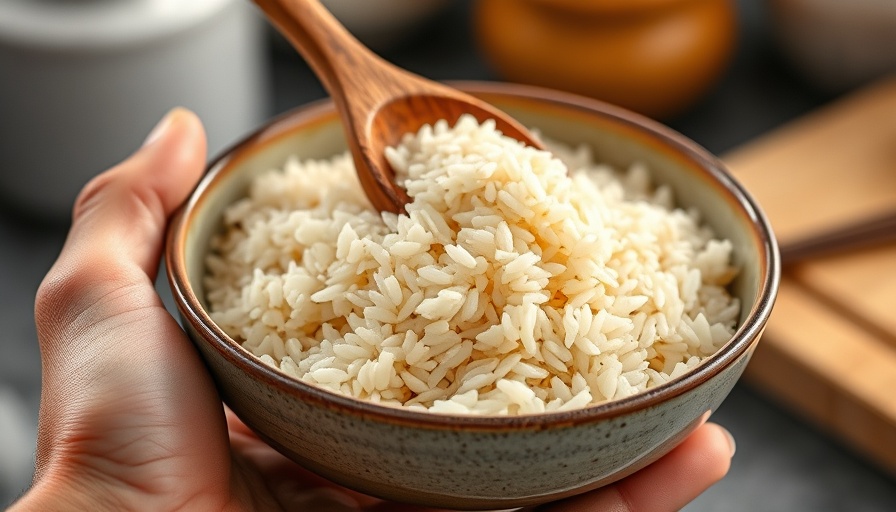
Rice About to Be Reconsidered: High Arsenic Levels Uncovered
In a startling revelation, a report by Healthy Babies, Bright Futures has highlighted alarming levels of arsenic detected in rice products found in American grocery stores. The study analyzed 105 rice samples — including popular brands sold at traders like Trader Joe's and Walmart — only to find that each product contained some level of arsenic. Disturbingly, over 25% of the tested samples surpassed the FDA's safety threshold for arsenic in infant rice cereal, set at 100 parts per billion.
The Worrying Impact of Heavy Metals
The findings don't stop at arsenic; researchers also identified traces of toxic metals such as cadmium, lead, and mercury in various rice samples. It's crucial to note that the amount of these heavy metals varies significantly depending on the rice's origin. For example, jasmine rice from Thailand and white rice grown in California demonstrated lower levels compared to brown rice from the Southeastern U.S.
Health Risks Associated with Arsenic Exposure
Chronic ingestion of inorganic arsenic has been linked to severe health issues, including several cancers, particularly kidney and bladder cancers, as well as Type 2 diabetes. The FDA and EPA have classified inorganic arsenic as a carcinogen, reinforcing why this information is paramount for public health. Alarming as it is, experts suggest that while the risk from trace amounts may not be immediate, it’s prudent, especially for infants and young children, to moderate rice consumption and consider alternative grains like quinoa and barley, which are safer options.
Practical Steps for Safer Consumption
The FDA recommends rinsing rice thoroughly before cooking and using a 6:1 water-to-rice ratio to lower arsenic levels further. Drain any excess water post-cooking for an added measure of precaution. As the public engages with these findings, it becomes clear: diversity in diet, particularly in grain intake, plays a critical role in promoting long-term health.
Engaging with Food Safety Through Knowledge
As consumers navigate the complexities of food safety, knowledge is a powerful tool. Understanding the risks associated with common staples allows individuals to make informed choices. By exploring varied dietary options, we can embrace healthy lifestyles that not only minimize toxic exposure but enhance overall nutrition.
Staying informed about these issues enables proactive healthcare decisions that bolster wellness. For those looking to enhance their health routines, integrating diverse foods and practices is vital. Explore options beyond rice, and take charge in paving a path towards healthier eating habits.
 Add Row
Add Row  Add
Add 




Write A Comment